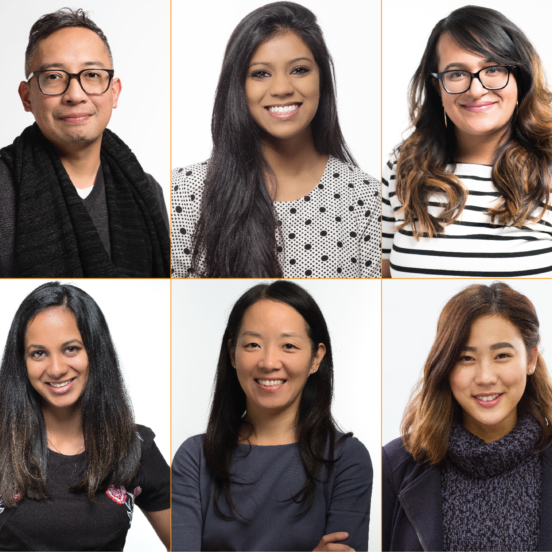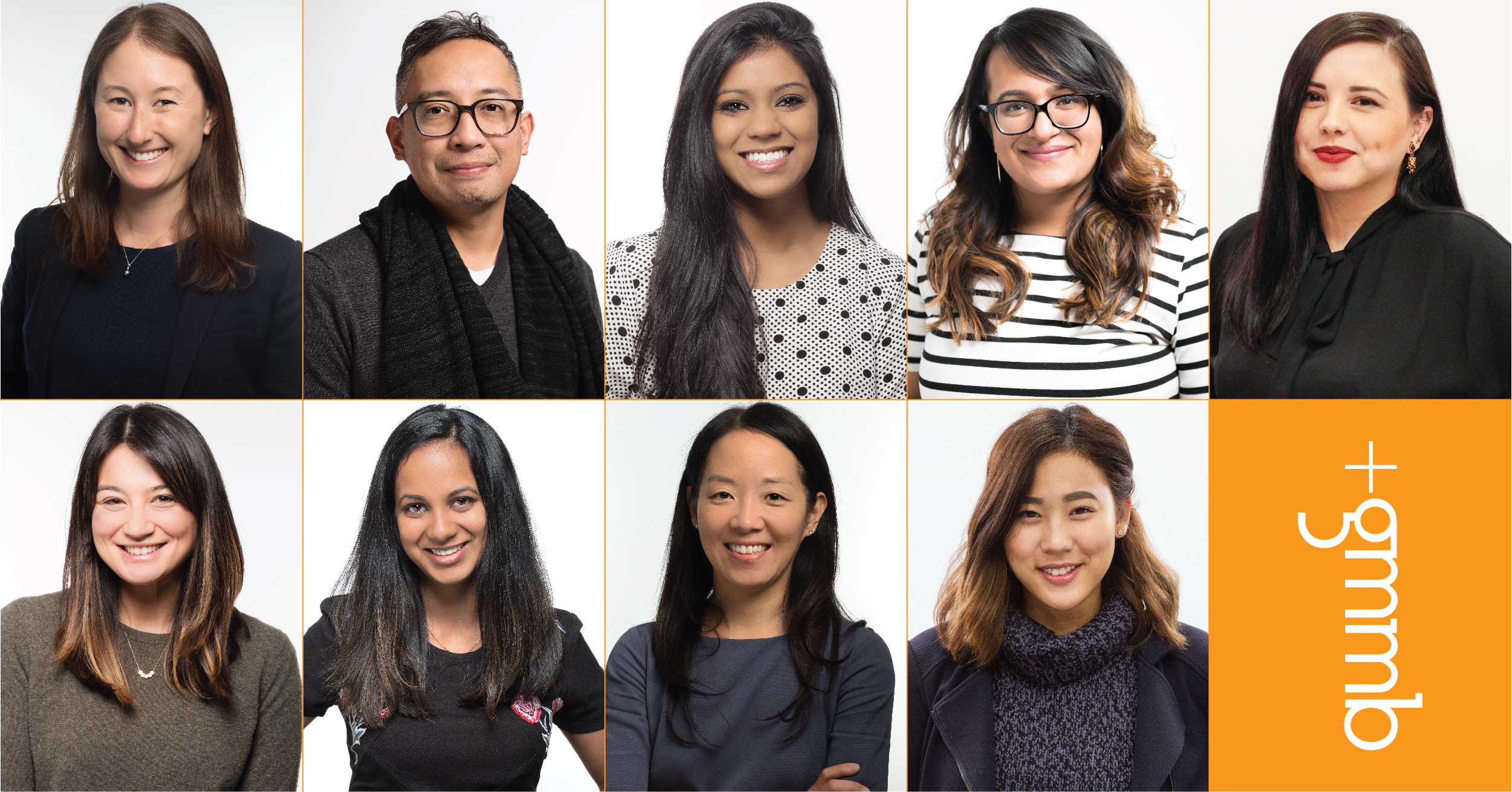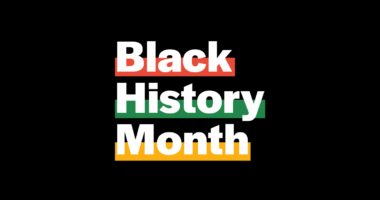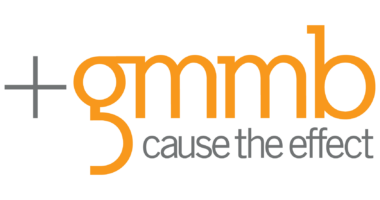GMMB News
GMMB Celebrates Our AAPI Colleagues
May 30, 2018

Celebrating Asian Pacific Islander American Heritage Month means acknowledging a wide range of languages, religions and ethnic groups. To honor the enormous contributions of this diverse community, we’re highlighting some of our AAPI colleagues’ stories about what their heritage means to them.
***
Margaret Cody, Vice President

Korean-American
Growing up half-Korean and half-Caucasian, it was difficult to reconcile being of two different backgrounds in a society that likes neat categorizations. Being forced to check only one race box or fielding constant questions about my ethnicity (usually expressed as “What are you?”) was a reminder that I was seen as “other” and not easily classified. How could I identify only as white, or only as Korean, when I saw myself belonging to both ethnicities equally?
My heritage means a deep appreciation for multiculturalism and the nuances of identity, enthusiasm for dispelling stereotypes, and opening others’ eyes to Korean culture. (And mild amusement that Korean food has become trendy.) And since the U.S. isn’t playing in this year’s World Cup, I’ll be cheering for South Korea.
***
Antonio Cordero, Designer

Filipino-American
Both my parents left the Philippines in the ’70s when President Marcos initiated martial law. As a child, I would occasionally spend summers there, and I learned to appreciate where my parents came from and the sacrifices they made to provide better opportunities for my siblings and me. Being born in the U.S. and raised with a mix of American and Filipino influences and values definitely shaped me as a person.
***
Ariel Durgana, Account Executive

Guyanese-American
Growing up in a multi-religious and multicultural household, I was born into to a diverse world of Bollywood and Soca music; a world full of dancing, music, spices and love. I learned about tolerance from watching my Presbyterian father give sermons at my Nani’s Mandir and my Hindu mother teach Sunday school at my father’s church. It’s given me a deep appreciation for everything I have and everything my family has worked for. So, for me, my Asian American heritage isn’t a check in a box, it’s just a piece of the puzzle.
***
Nimra Haroon, Assistant Account Executive

Pakistani-American
Identifying as merely Asian American does not do justice to my past and current experiences. As a South Asian American, I identify more strongly with my culture and heritage than I do with the Asian box I check on paperwork. I attribute the experiences I have faced over the years to being brown, being Desi, being Muslim, and being a Pakistani American. Those facets of my identity aren’t shared experiences across all Asian and Pacific Islander communities. Our spirituality and faith, customs, languages, nationalities and cultures define us more than just a geographic categorization.
***
Chelsea Hawkins, Senior Account Executive

Korean-American
My Asian American identity is a difficult thing to untangle because I come from a very racially mixed family, but that complexity has given me a lot of insight into identity, belonging and the questions we must confront when it comes to talking about race and ethnicity. Being Korean-American has always been a thread back to the people who have shaped me the most: my halmeoni and my dad—both of whom maybe bring a bit too much han to the table.
When I think of what it means to be Korean-American, I immediately think of intense loyalty to family, of stubborn survival and tough determination. And then I think about food—of jjigaes bubbling on stove tops and the comforts of kimchi, eggs and bap. And I think about how my halmeoni always added a little extra rice to my bowl just to make sure I had enough, because we always want the people we love to have an excess of good things.
***
Jennifer MacDonald, Account Supervisor/Copywriter

Japanese-American
As a half-Japanese, half-Caucasian person, I’ve always struggled to pinpoint my identity. Growing up in a predominantly white community while having deep family ties back to Japan, my heritage made me feel simultaneously unique and also excluded. I saw friendships flourish or fizzle based on how well other parents accepted and connected with my mother. I struggled to understand the twinge I felt when I encountered fetishism passed off as cultural admiration. In college, I discovered a community of people who identified as hapa and it felt like an instant fit. It made me realize that I own my identity and that my blend of experiences and traditions are uniquely mine. It makes me the woman I am.
***
Gayatri Surendranathan, Project Manager

Indian-American
Identifying as Indian-American (and presenting as Indian-American!) is, like almost any minority identity, complicated and fraught but also wonderful and empowering. Since childhood, I’ve learned how to navigate the unique challenges that come with often being the only person in a room who doesn’t share the dominant cultural background. I’ve learned to be confident instead of defensive, vocal instead of quietly resentful in the face of prejudice.
I come from an ancient, community-oriented, culturally rich background, and I grew up in America, which prides itself on its novelty and emphasis on independence—this has encouraged me from a young age to be open to how many different “ways of being” there are. As I decide what I want my life to look like, I am grateful to be able to blend the best of these two vastly different value systems that both feel like they’re “mine.”
***
Sandy Won, Senior Vice President

Korean-American
I’m proud of my heritage—it connects me to my parents, my family and where I come from. At the same time, I know my experience—like the experiences of other Korean-Americans—is one that’s still being written. It’s all part of a bigger story that weaves together the many diverse cultures that make up America. And I’m proud of that, too.
***
Chantal Wong, Assistant Account Executive

Malay/Chinese-American
I am Malay-Chinese, and I’ve had the opportunity to grow up with a beautiful mix of cultures and traditions. I was born and raised in a big Chinese-American family, which meant stuffing myself with dumplings on Chinese New Year and getting too competitive when it comes to grabbing the bill. My heritage has helped me understand true love in family and how important food is (there is no such thing as too much food). I am proud of my cultural heritage. Just don’t judge me when I randomly break into old-school Chinese songs.
***
From all of us at GMMB, Happy Asian Pacific American Heritage Month! Interested in joining our diverse and growing team? Check out our open positions in Washington, DC and Seattle today.

)





